ジブチの事例。ジブチないし東アフリカでは最初の、アフリカ全土では二度目の挑戦とのこと。
BBC GMO mosquitoes released in Djibouti to fight malaria 20 hours ago
Dorcas Wangira
遺伝子改変したオスを大量に放ち、それと野生のメスが交配すると、メスの子は死に、オスだけなんとか生き残る。が、近く死ぬ。致死性の遺伝子改変をするわけだ。これを「フレンドリー・モスキート」と言った表現で書くのは、かなーり冒涜的な気はする。しかし人間側の罪悪感を減らす何ものかではあるなあ。
「Tens of thousands of genetically modified (GMO) mosquitoes have been released in Djibouti in an effort to stop the spread of an invasive species that transmits malaria.
The friendly non-biting male Anopheles stephensi mosquitoes, developed by Oxitec, a UK-based biotechnology company, carry a gene that kills female offspring before they reach maturity.
Only female mosquitoes bite and transmit malaria and other viral diseases.
It is the first time such mosquitoes have been released in East Africa and the second time in the continent.」
すでに同じ手法はブラジル、ケイマン諸島、パナマやインドで実践されているそう。実績ある手法の様子で、ジブチでの作戦もうまくいくのだろう。
「Similar technology has been successfully used in Brazil, the Cayman Islands, Panama, and India, according to the US Centres for Disease Control and Prevention (CDC).
More than one billion such mosquitoes have been released around the world since 2019, CDC says.
The first batch of the mosquitoes were released into the open air on Thursday in Ambouli, a suburb of Djibouti city.」
しかしこれで蚊を絶滅させるのはどうなの?という意見があり得る。それも含めて自然環境であり、下手に消去するとほかの生き物に影響が出る。…まあ、このマラリア媒介の蚊はアジアから流入してきたものだとかで、その点はクリア…でしょうね。
「The country was then on the verge of eliminating malaria, when it recorded close to 30 malaria cases. Since then, malaria cases have risen exponentially in the country to 73,000 by 2020.」
「The species is now present in six other African countries - Ethiopia, Somalia, Kenya, Sudan, Nigeria and Ghana.
The Stephensi species, originally from Asia, is very difficult to control. It is also referred to as an urban mosquito that has outsmarted traditional methods of control. It bites both during the day and at night and is resistant to chemical insecticides.」
…殺虫剤をぶちまけるよりは自然環境への影響度は低そうだ。
BBC GMO mosquitoes released in Djibouti to fight malaria 20 hours ago
Dorcas Wangira
遺伝子改変したオスを大量に放ち、それと野生のメスが交配すると、メスの子は死に、オスだけなんとか生き残る。が、近く死ぬ。致死性の遺伝子改変をするわけだ。これを「フレンドリー・モスキート」と言った表現で書くのは、かなーり冒涜的な気はする。しかし人間側の罪悪感を減らす何ものかではあるなあ。
「Tens of thousands of genetically modified (GMO) mosquitoes have been released in Djibouti in an effort to stop the spread of an invasive species that transmits malaria.
The friendly non-biting male Anopheles stephensi mosquitoes, developed by Oxitec, a UK-based biotechnology company, carry a gene that kills female offspring before they reach maturity.
Only female mosquitoes bite and transmit malaria and other viral diseases.
It is the first time such mosquitoes have been released in East Africa and the second time in the continent.」
すでに同じ手法はブラジル、ケイマン諸島、パナマやインドで実践されているそう。実績ある手法の様子で、ジブチでの作戦もうまくいくのだろう。
「Similar technology has been successfully used in Brazil, the Cayman Islands, Panama, and India, according to the US Centres for Disease Control and Prevention (CDC).
More than one billion such mosquitoes have been released around the world since 2019, CDC says.
The first batch of the mosquitoes were released into the open air on Thursday in Ambouli, a suburb of Djibouti city.」
しかしこれで蚊を絶滅させるのはどうなの?という意見があり得る。それも含めて自然環境であり、下手に消去するとほかの生き物に影響が出る。…まあ、このマラリア媒介の蚊はアジアから流入してきたものだとかで、その点はクリア…でしょうね。
「The country was then on the verge of eliminating malaria, when it recorded close to 30 malaria cases. Since then, malaria cases have risen exponentially in the country to 73,000 by 2020.」
「The species is now present in six other African countries - Ethiopia, Somalia, Kenya, Sudan, Nigeria and Ghana.
The Stephensi species, originally from Asia, is very difficult to control. It is also referred to as an urban mosquito that has outsmarted traditional methods of control. It bites both during the day and at night and is resistant to chemical insecticides.」
…殺虫剤をぶちまけるよりは自然環境への影響度は低そうだ。










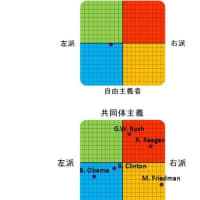
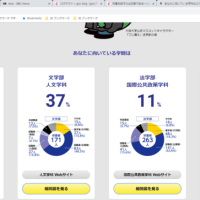


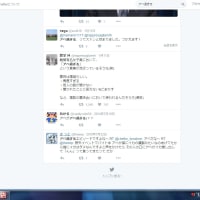

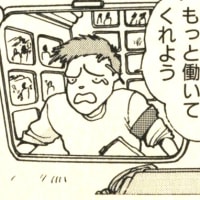

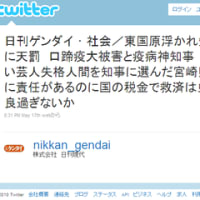
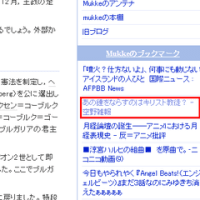





※コメント投稿者のブログIDはブログ作成者のみに通知されます